Being a new mom and having a teen sibling can be hard, especially when you’re living together. You have enough on your plate with the new baby, and worrying about an angsty, rebellious teen can only add more stress to your everyday life.
When this mom agreed to take in her teen brother, she didn’t think it would backfire one day. In an effort to prank her, the teen pretended to throw her baby down the stairs. The mom, however, didn’t find it funny, and, in a fit of rage, kicked the boy out of their house. After her loved ones started telling her she overreacted, the mom asked what netizens think about this situation.
Bored Panda reached out to Licensed Clinical Psychologist Dr. Kimberly A. Lemke to know more about why sometimes teenagers take jokes too far. She also told us how parents can talk to teenagers about the difference between harmless fun and cruel pranks. Read her expert insights below:
More info: Dr. Kimberly A. Lemke | Drift Course With Dr. Lemke | Instagram | Facebook | LinkedIn | TikTok
This teen decided to prank his adult sister by pretending to throw her baby down the stairs

Image credits: deniz baha / pexels (not the actual photo)
But she didn’t think it was funny, as she decided to kick him out of her family’s house

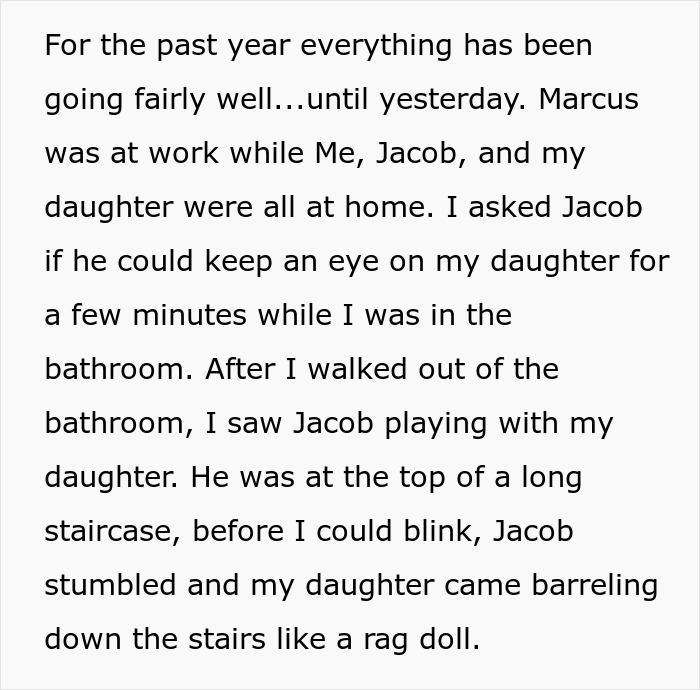
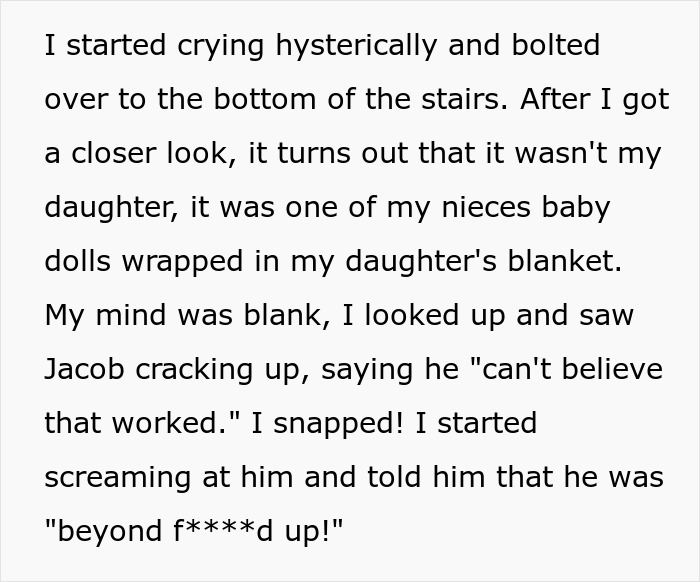

Image credits: RDNE Stock project / pexels (not the actual photo)
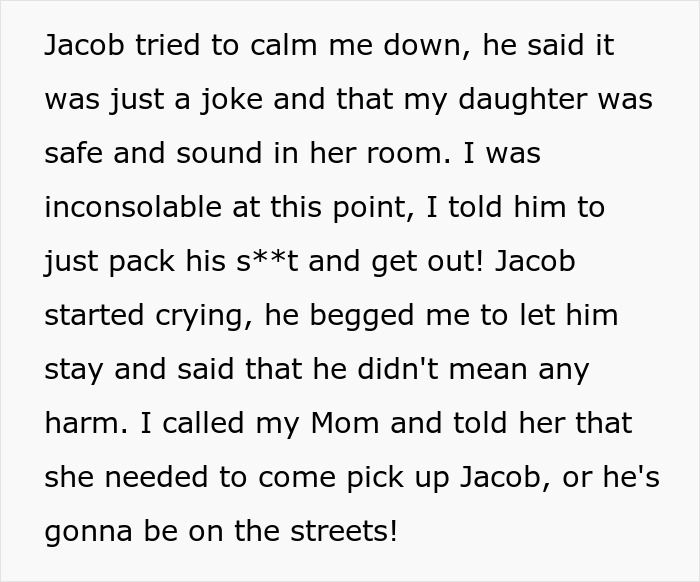
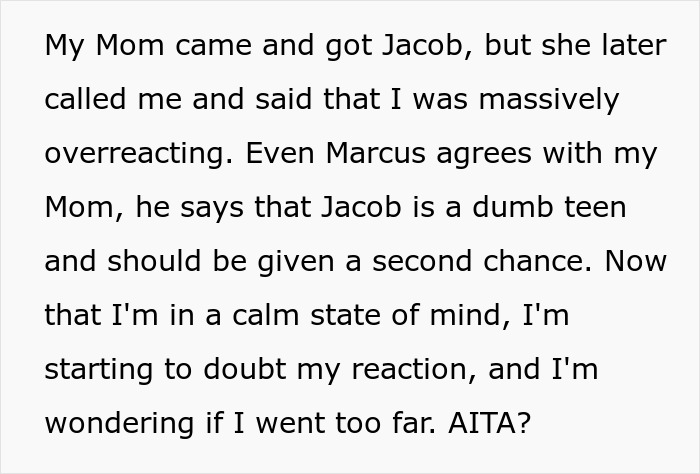
Image credits: ThrowRAprank_problem
Sometimes, teenagers might take a joke too far without understanding that it’s inappropriate
Kids’ personalities and appearance are not the only things prone to change with puberty. As they become teenagers, their sense of humor can change as well. “Young children enjoy simple jokes and silly antics,” Dr. Kimberly Lemke explains. “When they reach their teenage years, they start to appreciate more complex humor, like sarcasm and irony, which lets them make fun of social rules and situations.”
“While kids play mostly for fun, teenagers often use humor to deal with feelings like stress or insecurity. Socially, kids play by clear rules, but teens face more complicated social situations, using humor to fit in or stand out.”
The clinical psychologist tells Bored Panda that there are a few reasons why teens might take a joke or prank too far. First, they might still be forming their identity. “They’re figuring out who they are and might not realize how their words can hurt others,” Dr. Lemke says.
“Peer pressure can push them to make risky jokes to gain acceptance, often ignoring how those jokes affect their friends. Emotional ups and downs during adolescence can lead to insensitivity, as humor becomes a way to cope.”
It’s not unusual for teens to first do or say and only think after. “Plus, since they have less life experience, they might not understand what’s appropriate,” Dr. Lemke adds. “Recognizing these factors can help adults guide teens toward better communication and empathy.”

Image credits: Craig Adderley / pexels (not the actual photo)
Parents can share their own personal experiences to make the topic of cruel pranks more relatable
Naturally, it’s hard to react calmly after something as frightful as what the author describes here. Still, we wanted to ask Dr. Kimberly Lemke what can parents and adults in this situation do to make a teen understand this is not acceptable behavior.
“Talking to teenagers about the line between harmless fun and harmful behavior starts with creating a safe space for open, judgment-free communication,” she explains. “Parents can set aside relaxed times, like family meals or outings, to encourage sharing in a pressure-free environment.”
She emphasizes the importance of active listening in these conversations. “Give your full attention, show interest, and respond thoughtfully to what they say. Avoid reacting with anger; instead, ask questions or use ‘I’ statements like, ‘I feel concerned when I hear about certain behaviors.’”
She also encourages parents and guardians to share some personal stories to make the matter more relatable. Telling your adolescent about your own mistakes helps to normalize these conversations, encouraging teens to open up.
“Validate their feelings, letting them know it’s okay to be confused about social dynamics,” Dr. Lemke adds. “Use relatable examples from pop culture or their immediate school environment to highlight the difference between playful teasing and hurtful actions.”
“Encourage empathy by asking questions like, ‘How would you feel if that happened to you?’ or ‘What do you think the person being teased is experiencing?’ It’s important to emphasize empathy and help them understand the impact of their actions, both short and long-term. This respectful dialogue not only teaches important social skills but also strengthens a parent’s relationship with their teen,” Dr. Lemke says.

Image credits: Kindel Media / pexels (not the actual photo)
Many commenters didn’t see the humor in the prank either, saying the mom did the right thing

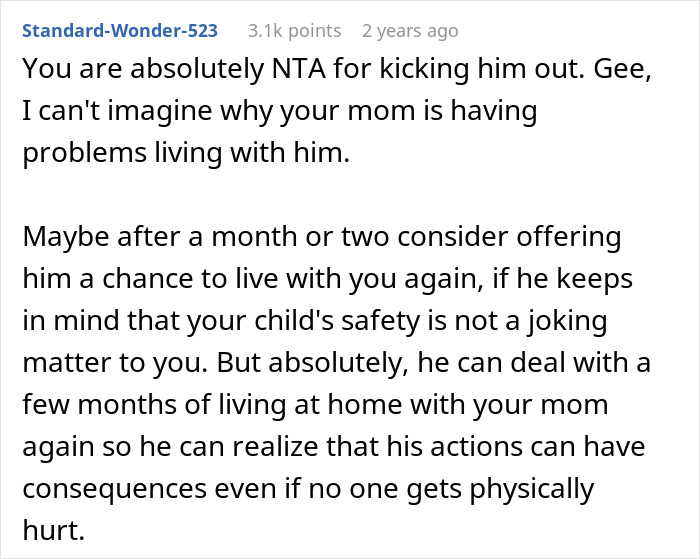
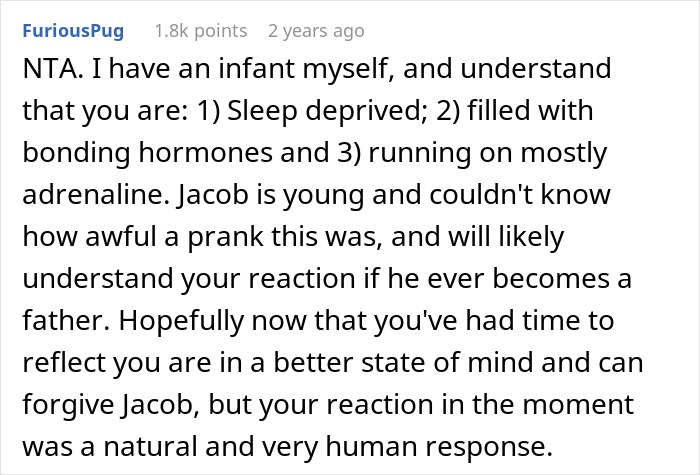
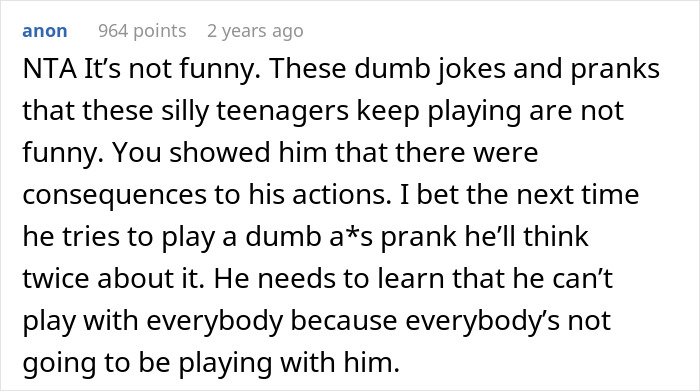
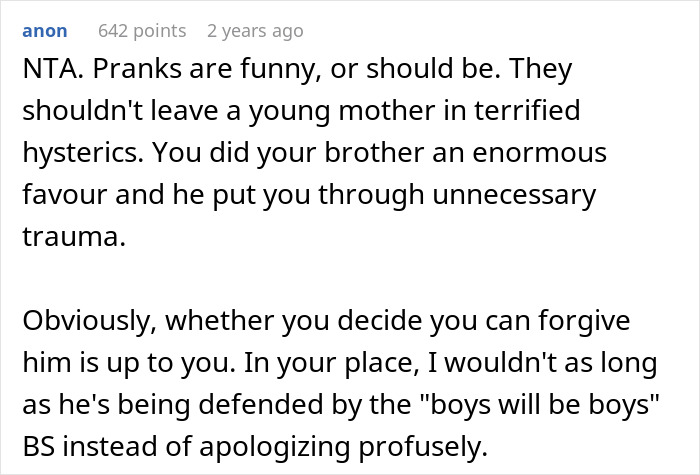
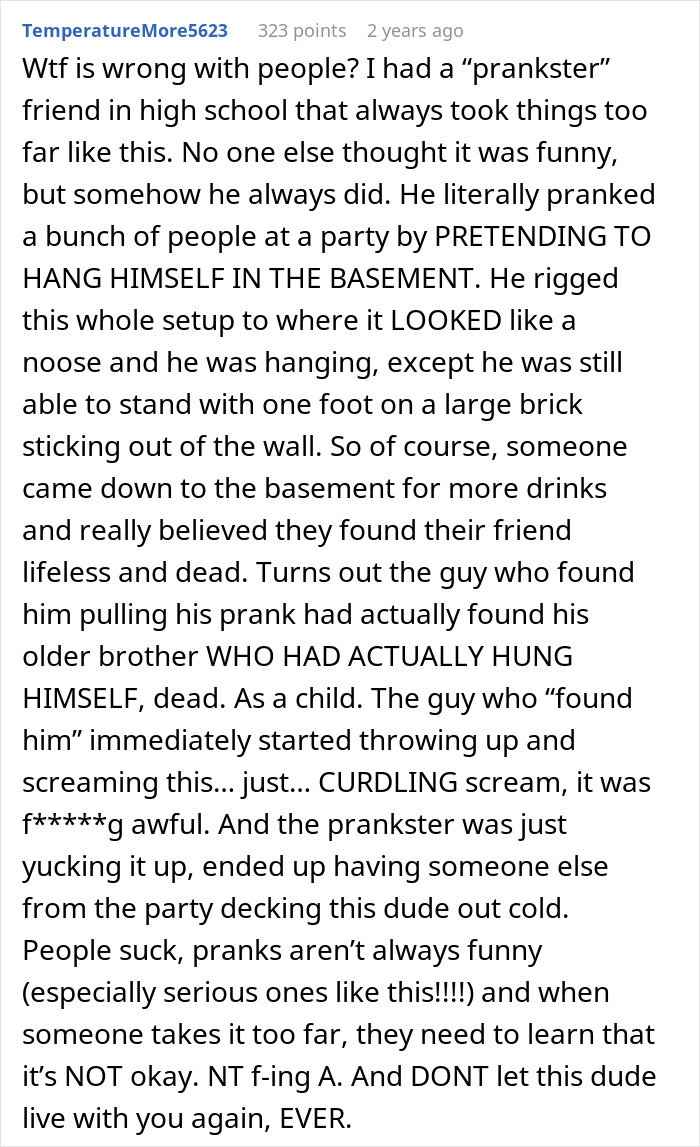
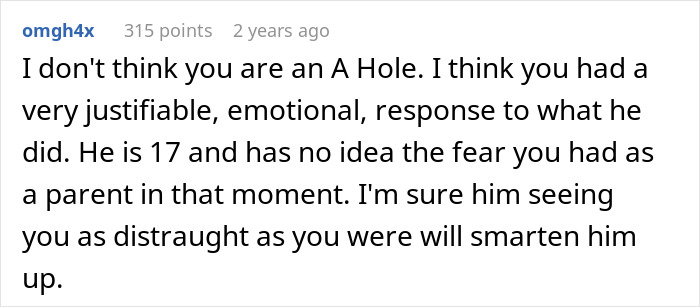
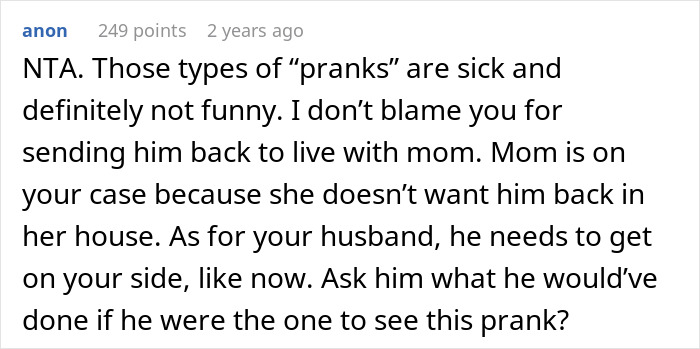
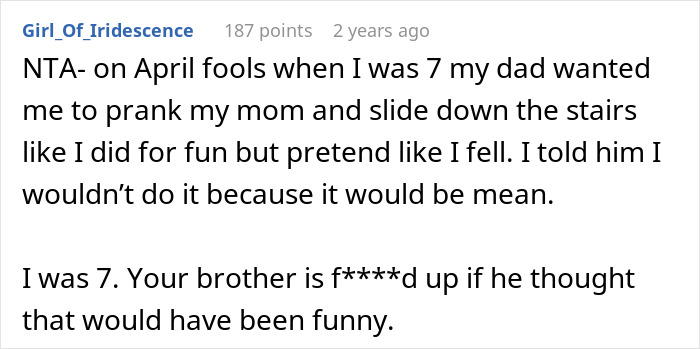
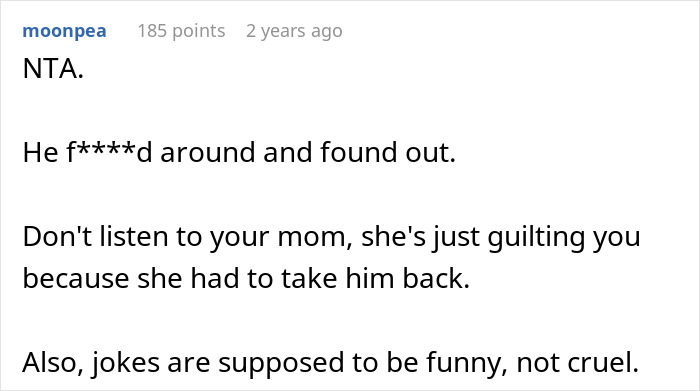

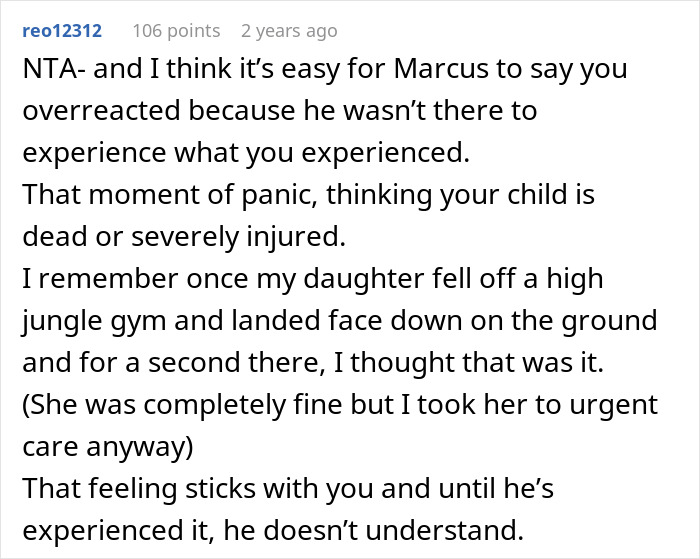
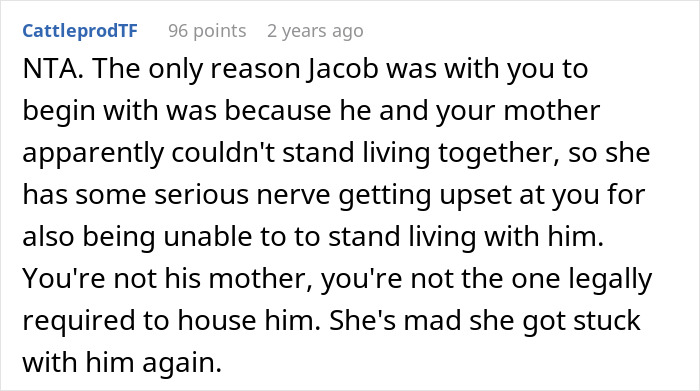

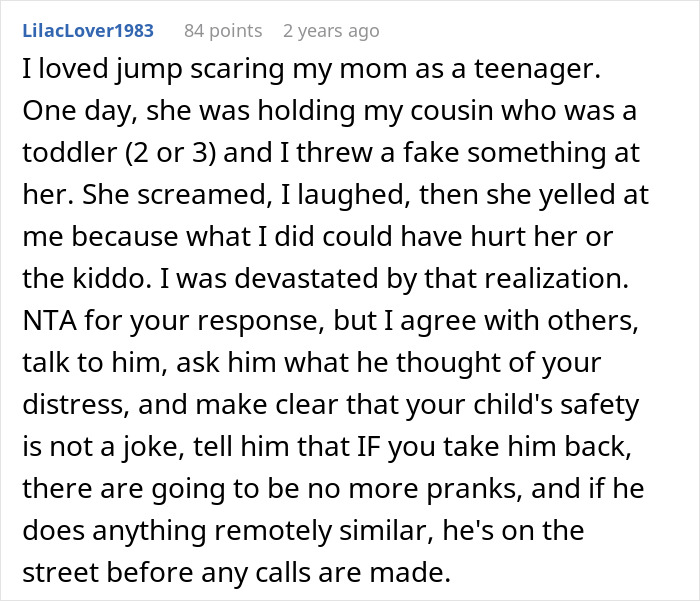
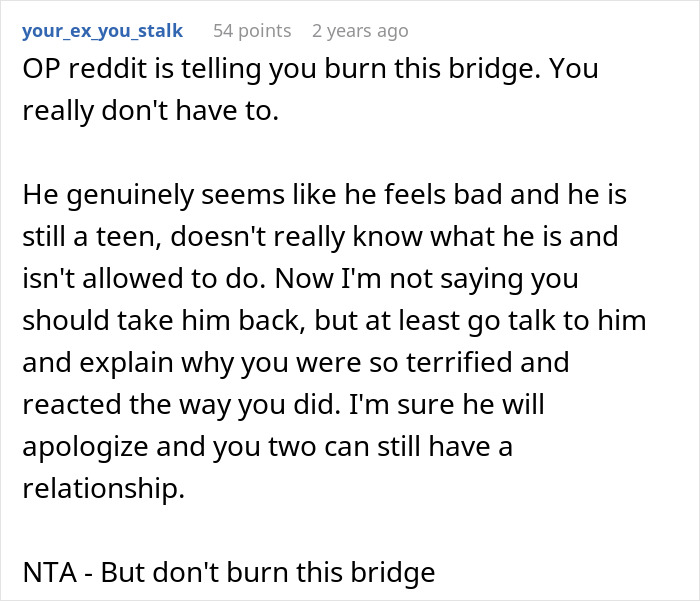
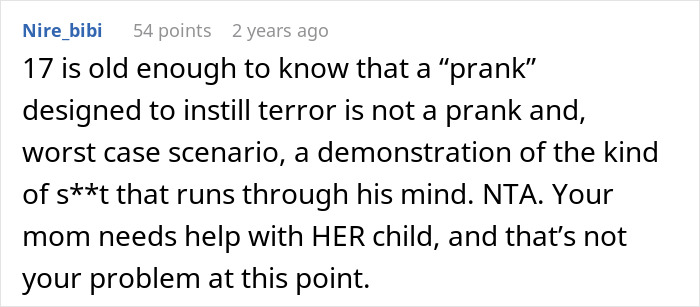

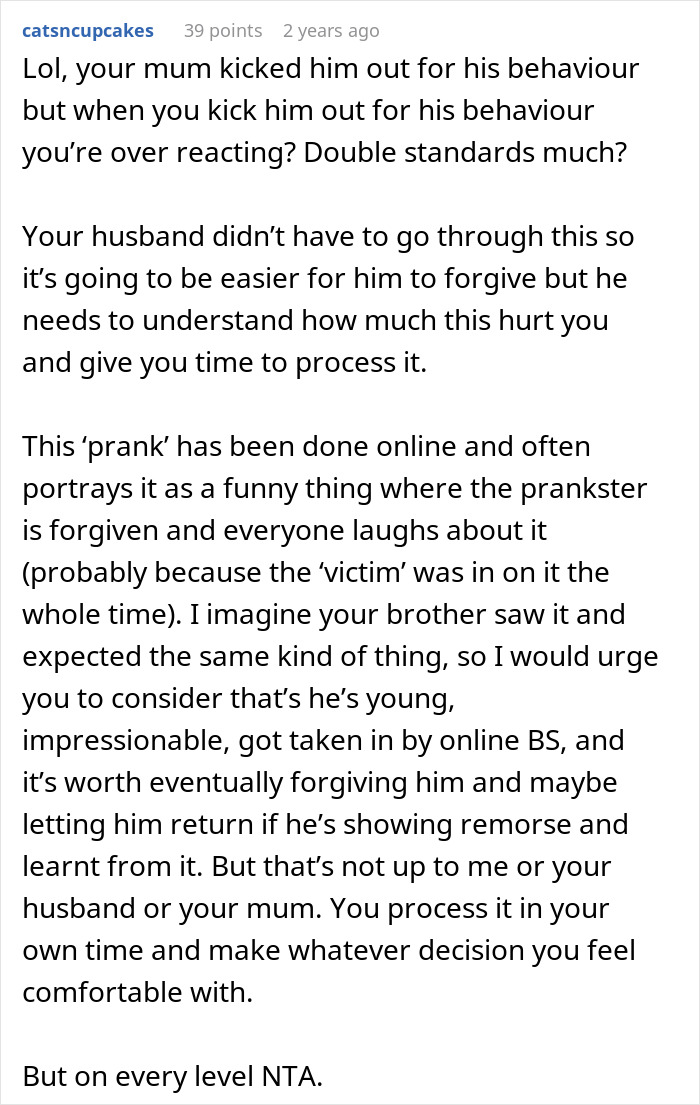
However, some thought she was overreacting and needed to give her little brother another chance
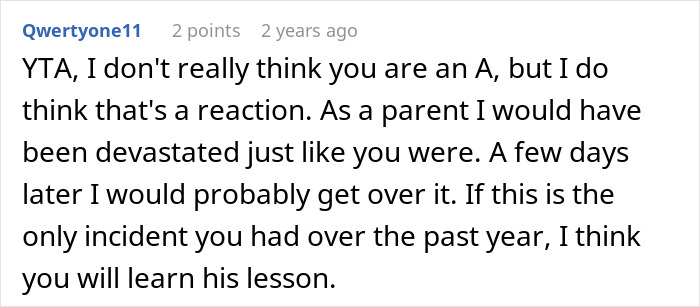
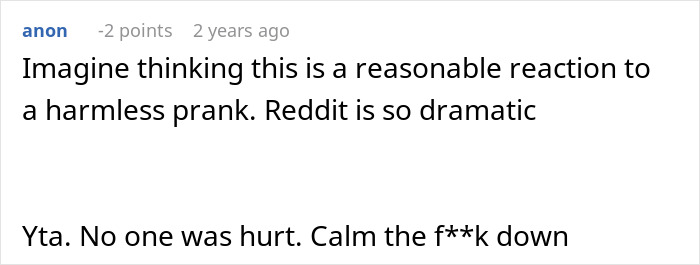
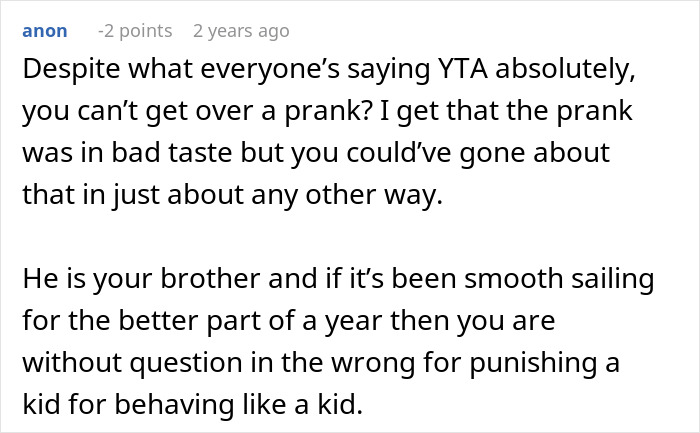

The post Woman Kicks Her Teen Brother Out Of The House Over A Sick Prank first appeared on Bored Panda.
from Bored Panda https://ift.tt/ymbjcKT
via IFTTT source site : boredpanda